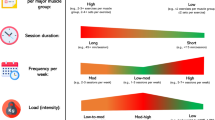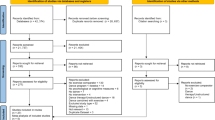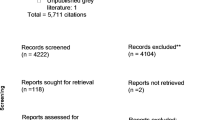Abstract
We assessed how much time individuals would be willing to spend engaging in game-based cognitive training to gain prolonged functional independence. In study 1 (N = 294), participants completed a survey with questions assessing how much time they would be willing to invest in daily cognitive training to extend their functional independence by certain amounts of time using a slider response that ranged from 0 to 100 min. Participants also completed surveys that measured self-perceived health and cognitive functioning, personality, and other demographic variables. Even for relatively small gains, participants reported being willing to dedicate an average of 11 min every day to cognitive training, with some participants willing to engage for significantly longer. The best predictor of willingness to invest time in training was belief in cognitive training efficacy, followed by openness to experience, and participants’ self-perceived cognitive deficit. Study 2 examined the same question in a sample of 120 older adults, this time allowing for open-ended responses. Participants reported being willing to invest significantly more time, ranging from more than 40 min every day to gain just 1 week of independence, to over 2.5 h every day to gain an additional 3 years of independence. Again, perception of cognitive training efficacy was the strongest predictor of willingness to invest time. Results confirm that older adults are willing to invest significant amounts of time to gain independence later in life and have implications for predicting the adoption of, and adherence to, potentially effective treatments for cognitive decline.




Similar content being viewed by others
Notes
In this manuscript, we use the terms cognitive training or cognitive intervention to describe programs and activities designed to improve cognition in the aid of the performance of important everyday tasks. However, in our study materials aimed at the public, we used the more colloquial terms “brain training” and “brain games.”
References
“A consensus on the brain training industry from the scientific community.” (n.d.). Retrieved from http://longevity3.stanford.edu/blog/2014/10/15/the-consensus-on-the-brain-training-industry-from-the-scientific-community-2/. Accessed 2018
Boot, W. R., Champion, M., Blakely, D. P., Wright, T., Souders, D. J., & Charness, N. (2013). Video games as a means to reduce age-related cognitive decline: attitudes, compliance and effectiveness. Frontiers in Psychology, 4, 1–9.
Chen, K., & Chan, A. H. S. (2014). Gerontechnology acceptance by elderly Hong Kong Chinese: a senior technology acceptance model (STAM). Ergonomics, 57(5), 635–652.
“Cognitive Training Data.” Retrieved from: https://www.cognitivetrainingdata.org/
Dennis, S. A., Goodson, B. M., & Pearson, C. (2018). MTurk workers’ use of low-cost ‘virtual private servers’ to circumvent screening methods: a Research Note. Available at SSRN: https://ssrn.com/abstract=3233954 or doi:https://doi.org/10.2139/ssrn.3233954
Fishbein, M., & Ajzen, I. (1975). Belief, attitude, intention and behavior: an introduction to theory and research. Reading, MA: Addison-Wesley.
Friedman, D. B., Laditka, S. B., Laditka, J. N., Wu, B., Liu, R., et al. (2011). Ethnically diverse older adults’ beliefs about staying mentally sharp. International Journal of Aging and Human Development, 73(1), 27–52.
Gosling, S. D., Rentfrow, P. J., & Swann, W. B. (2003). A very brief measure of the big-five personality domains. Journal of Research in Personality, 37(6), 504–528.
Green, L., Myerson, J., & McFadden, E. (1997). Rate of temporal discounting decreases with amount of reward. Memory & Cognition, 25(5), 715–723.
Green, C. S., Li, R., & Bavelier, D. (2010). Perceptual learning during action video game playing. Topics in Cognitive Science, 2(2), 202–216.
Jerusalem, M., & Schwarzer, R. (1995). The general self-efficacy scale (GSE).
Mehegan, L., Rainville, C., & Skufca, L. (2017). 2017 AARP cognitive activity and brain health survey. Washington, DC: AARP Research. https://doi.org/10.26419/res.00044.001.
Mitzner, T. L., Rogers, W. A., Fisk, A. D., Boot, W. R., Charness, N., Czaja, S. J., & Sharit, J. (2016). Predicting older adults’ perceptions about a computer system designed for seniors. Universal Access in the Information Society, 15(2), 271–280.
Rabipour, S., & Davidson, P. S. R. (2015). Do you believe in brain training? A questionnaire about expectations of computerised cognitive training. Behavioural Brain Research, 295, 64–70.
Rabipour, S., Andringa, R., Boot, W. R., & Davidson, P. S. (2018). What do people expect of cognitive enhancement? Journal of Cognitive Enhancement, 2(1), 70–77.
Rogers, R. W. (1983). Cognitive and physiological processes in fear appeals and attitude change: a revised theory of protection motivation. In B. L. Cacioppo & L. L. Petty (Eds.), Social psychophysiology: a source book (pp. 153–176). London: Guilford Press.
Rosenstock, I. M., Strecher, V. J., & Becker, M. H. (1988). Social learning theory and the health belief model. Health Education Quarterly, 15(2), 175–183. https://doi.org/10.1177/109019818801500203.
Simons, D. J., Boot, W. R., Charness, N., Gathercole, S. E., Chabris, C. F., Hambrick, D. Z., & Stine-Morrow, E. L. (2016). Do “brain-training” programs work? Psychological Science in the Public Interest, 17(3), 103–186.
Souders, D. J., Boot, W. R., Blocker, K., Vitale, T., Roque, N. A., & Charness, N. (2017). Evidence for narrow transfer after short-term cognitive training in older adults. Frontiers in Aging Neuroscience, 9, 41.
Sullivan. (1990). Perceived deficits questionnaire (PDQ).
Tennstedt, S. L., & Unverzagt, F. W. (2013). The ACTIVE study: study overview and major findings. Journal of Aging and Health, 25(8 0), 3S–20S.
Toril, P., Reales, J. M., & Ballesteros, S. (2014). Video game training enhances cognition of older adults: a meta-analytic study. Psychology and Aging, 29(3), 706–716.
Ware, J. E., Jr., & Sherbourne, C. D. (1992). The MOS 36-item short-form health survey (SF-36): I. Conceptual framework and item selection. Medical Care, 30(6), 473–483.
Wechsler, D. (1997). Wechsler memory scale—3rd edition. The Psychological. Corporation, San Antonio, TX.
Funding
This study was financially supported by the National Institute on Aging, Project CREATE IV – Center for Research and Education on Aging and Technology Enhancement (www.create-center.org, NIA P01 AG017211). This research was also partially funded by the Bess H. Ward Honors Thesis Award and the HSA Conference Presenter Award from Florida State University.
Author information
Authors and Affiliations
Corresponding author
Ethics declarations
Conflict of Interest
The authors declare that have no conflict of interest.
Additional information
Publisher’s Note
Springer Nature remains neutral with regard to jurisdictional claims in published maps and institutional affiliations.
Study 1 and 2 data, as well as supplemental analyses, can be found here: https://osf.io/25czj/?view_only=100c1c46f2e04142a0e1a2efc5da41ba.
Appendix. Brain Training and Independence Survey
Appendix. Brain Training and Independence Survey
As we age, our ability to remember information, react quickly, and solve problems can worsen. A number of brain training products are marketed to prevent or slow these declines. These products usually take the form of simple games that can be played on a computer or mobile device. The ultimate goal of these products is to improve brain functioning so that as we age we can continue to perform the important everyday tasks required to live independently (for example, driving and managing finances).
Imagine that there is a proven brain training product on the market. Imagine that the evidence conclusively demonstrates that playing these brain games every day can allow people to live independently longer as they age. In one study, for example, people who engaged in brain training were able to live independently in their own homes for 6 months longer compared to a control group.
This survey will ask you about the amount of time you would be willing to engage in brain training each day in order to obtain benefits. For example:
-
Would you be willing to engage in brain training 6 h every day, starting now, to gain an additional 2 weeks of independent living later in life?
-
Would you be willing to engage in brain training 5 min every day, starting now, to gain an additional 6 months of independent living later in life?
These are the types of tradeoffs we would like you to consider. Please answer the following questions assuming that the brain training product works. Think carefully about how much time you would be willing to invest each day, starting now, to receive benefits later in life.
- a)
If effective brain games were discovered that allowed people to live independently for 1 week longer, I would be willing to play these games: ______ minutes every day, starting today.
(Slider from 0 to 100 min)
- b)
If effective brain games were discovered that allowed people to live independently for 1 month longer, I would be willing to play these games: ______ minutes every day, starting today.
(Slider from 0 to 100 min)
- c)
If effective brain games were discovered that allowed people to live independently for 2 months longer, I would be willing to play these games: ______ minutes every day, starting today.
(Slider from 0 to 100 min)
-
d)
If effective brain games were discovered that allowed people to live independently for 6 months longer, I would be willing to play these games: ______ minutes every day, starting today.
(Slider from 0 to 100 min)
-
e)
If effective brain games were discovered that allowed people to live independently for 1 year longer, I would be willing to play these games: ______ minutes every day, starting today.
(Slider from 0 to 100 min)
-
f)
If effective brain games were discovered that allowed people to live independently for 2 years longer, I would be willing to play these games: ______ minutes every day, starting today.
(Slider from 0 to 100 min)
-
g)
If effective brain games were discovered that allowed people to live independently for 3 years longer, I would be willing to play these games: ______ minutes every day, starting today.
(Slider from 0 to 100 min)
Rights and permissions
About this article
Cite this article
Harrell, E.R., Kmetz, B. & Boot, W.R. Is Cognitive Training Worth It? Exploring Individuals’ Willingness to Engage in Cognitive Training. J Cogn Enhanc 3, 405–415 (2019). https://doi.org/10.1007/s41465-019-00129-4
Received:
Accepted:
Published:
Issue Date:
DOI: https://doi.org/10.1007/s41465-019-00129-4




